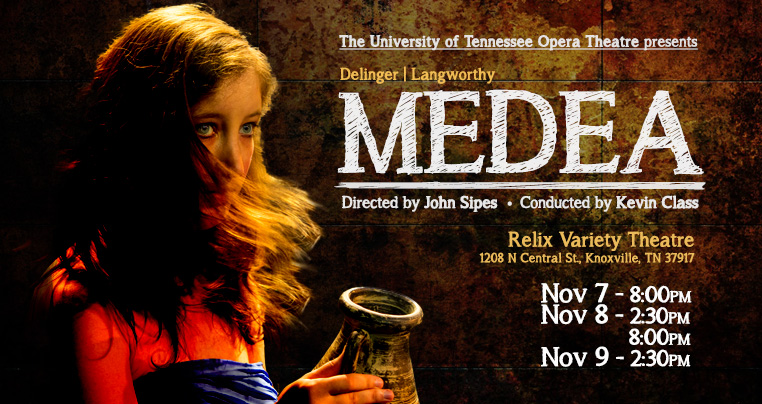Steve Smith, music writer and currently the Assistant Arts Editor at the Boston Globe, wrote in the New York Times in 2011: “New York is unquestionably an international capital of the arts, but it can also be a frustrating backwater when it comes to contemporary opera.”
It’s true. While New York City and its professional music scene can be counted on to be there with the biggest and best, it is not always the first. In this case, Smith was referring to a world premiere of Kommilitonen! by English composer Peter Maxwell Davis produced by the Juilliard School as a student production which he termed “the year’s most important premiere” which “…showed how vital and exhilarating contemporary opera could be.”
These days, in as many cases as not, contemporary operas are seeing the light of day thanks to small opera companies and university music schools outside of the big music centers of the U.S. The reasons for this involve a number of factors including a focused, but enthusiastic audience, and the ability of companies to mount productions with relatively small budgets.
For a number of reasons, Knoxville falls into this category of smaller markets where contemporary opera is growing and attracting notice. It took a big step forward this month with the University of Tennessee School of Music’s Opera Theatre world premiere production of Larry Delinger’s Medea at Relix Variety Theatre. This production came as a part of a composer-in-residence period for Delinger at UTK that also saw productions of two of his chamber operas by Marble City Opera, and a number of other performances of his music by faculty and students.
The story of Medea and Jason is familiar to modern audiences through a number of vehicles, notably the 400 BC Greek tragedy by Euripides. Delinger’s opera, however, uses a libretto by Douglas Langworthy adapted from a play by the 20th Century German playwright, Hans Henny Jahnn.
Delinger’s extensive background as a composer of incidental music for theatrical productions is apparent in his Medea—a work scored for piano and percussion instruments. His charming proficiency at creating threatrical atmosphere with short snippets of music was endlessly intriguing, as was the delightful rhythmical complexity and variety. While the atmospheric effects were descriptive scene to scene, the score, however, seemed to lack any sort of overall arcing continuity that would carry the otherwise episodic nature beyond being a collection of flavorful bits—and drive home the impact of the dramatic tragedy.
The informality of the Relix Variety Theatre proved to be an excellent venue for the production from an audience standpoint (uncomfortable seating notwithstanding), despite its size and technical limitations. Director John Sipes of the UT Department of Theatre used a simple step and platform arrangement made quite interesting and variable by scenic designer Josafath Reynoso and lighting designer John Horner. By necessity, Sipes kept the movement clean and simple, but generally dramatically effective. Also simple, yet visually evocative, were the wardrobe choices of costume designer Kyle Andrew Schellinger.
As is their practice, the UT Opera Theatre student cast was split over the four performances. Singing the role of Medea were Melanie Burbules and Maggie Ramsey. Both sang the role well, but Burbules dramatic performance was especially effective for its unhinged wildness and diabolical strength that showed in her stage presence.
Jahnn’s play takes on a number of more modern themes untouched by Euripides, among them eroticism in various flavors, the issue of Medea as a “barbarian,” and the idea of “blaming the messenger” for bad news. In Langworthy’s libretto based on Jahnn, the role of the Messenger takes on more significance as one who is blinded by Medea in a “barbaric” rage when he delivers news of the wedding of Jason and King Creon’s daughter. Appropriately, Delinger gave the role of the Messenger some of the most interesting lyrical opportunities in the work. Singing the role were Todd Barnhill and Mattia D’Affuso, both with vocal strength and likability, but with each making the role their own from a dramatic standpoint.
Brent Hetherington and James Eder alternated in the roles of the Tutor and Creon; the role of Jason was sung by Tad Ennen and Makoto Winkler. I couldn’t help feeling that the roles of Medea’s sons (sung by Taylor Stone and Ben Mason) suffered a bit in Langworthy’s adaptation, perhaps to avoid some of Jahnn’s more controversial character issues. Katlyn Householder sang the role of the Nurse in both casts.
The instrumental ensemble, under the direction of Kevin Class, consisted of pianists Claire Ting-Tzu Chiu, Emi Kagawa, and Wei-Chun Bernadette Lo; and percussionists Emory Hensley, Christopher Hoerauf, Wade Jenkins, and Nat Gallagher.
Given the audiences I experienced for UTOT’s performances of Medea on Friday and Saturday, it’s clear that contemporary opera has a definite following in Knoxville. And that audience will undoubtedly remain eager and ready for increasingly sophisticated theatrical experiences.








